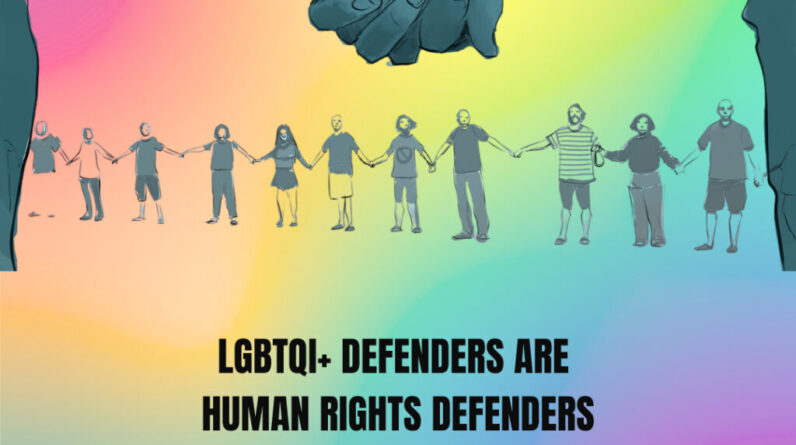
Universal Health Coverage Day is an annual event promoting equal access to healthcare globally. It encourages governments, organizations, and individuals to take action toward achieving this goal.
Universal Health Coverage Day is a significant annual event that emphasizes the importance of equal access to healthcare worldwide. It aims to mobilize governments, institutions, and individuals to actively work towards ensuring everyone can avail of essential healthcare services.
The day serves as a reminder that universal health coverage is not just a distant ideal but a fundamental right that should be accessible to all. By increasing awareness, advocating for policy changes, and promoting sustainable health systems, Universal Health Coverage Day strives to eliminate barriers that prevent individuals from receiving the care they need.
This comprehensive approach addresses the gaps in health services and seeks to improve the overall well-being of communities globally. We will explore the significance of Universal Health Coverage Day and the efforts to achieve this vital objective.
The Importance Of Universal Health Coverage
Universal Health Coverage (UHC) is a vital aspect of healthcare systems worldwide. It aims to ensure that all individuals and communities can access quality healthcare services without financial hardships. UHC promotes equal opportunities and reduces health inequalities, allowing everyone to receive the care they need, regardless of their socioeconomic status or geographic location.
By providing accessible healthcare for all, UHC helps to bridge the gap between different segments of society, creating a fairer and more inclusive healthcare system. It not only improves individual health outcomes but also contributes to national development and economic growth. UHC also plays a crucial role in reducing health disparities and promoting social justice.
In addition to promoting accessible healthcare, UHC provides financial protection for individuals. It ensures that individuals do not face catastrophic health expenditures that can push them into poverty. By pooling resources and establishing risk-sharing mechanisms, UHC enables individuals to access necessary healthcare services without worrying about the financial burden.
Overall, Universal Health Coverage is essential for achieving sustainable development goals, improving healthcare outcomes, and creating a healthier, fairer, and more prosperous society.
Achievements And Challenges In Universal Health Coverage
Universal Health Coverage (UHC) ensures that all individuals and communities have access to quality healthcare services without experiencing financial hardship. Over the years, significant progress has been made in implementing UHC, but challenges and barriers persist.
One of the key achievements of UHC is the progress made in expanding healthcare coverage. Many countries have taken steps to provide essential health services to their populations, reaching previously underserved communities. This has resulted in improved health outcomes and reduced inequalities.
However, achieving UHC is not without its challenges. Barriers such as lack of infrastructure, shortages of healthcare professionals, and inadequate healthcare financing systems continue to hinder progress. Some countries struggle with low health insurance coverage and high out-of-pocket payments, making healthcare services unaffordable for many.
To address these challenges, global commitments have been made, and initiatives have been launched to accelerate progress towards UHC. The World Health Organization’s Sustainable Development Goals include achieving UHC by 2030. Additionally, the World Bank has committed to supporting countries’ efforts through financing and technical assistance.
In conclusion, while progress has been made in implementing UHC, there are still challenges to overcome. Governments, international organizations, and stakeholders need to work together to address these barriers and ensure that everyone has access to affordable and quality healthcare services.
Innovations And Technologies In Healthcare
Universal Health Coverage Day is an important event emphasizing the significance of providing access to quality healthcare for all individuals. One of the critical components of achieving this goal is the integration of innovative technologies in the healthcare sector. These technologies have revolutionized healthcare delivery and have significantly improved the overall patient experience.
One such tech-enabled solution is telemedicine and remote healthcare services. With the advancement in communication technologies, healthcare professionals can now provide consultations and medical advice to patients remotely. This is especially beneficial for individuals who live in remote areas or have limited access to healthcare facilities.
Another innovation that has made a significant impact is artificial intelligence and machine learning in healthcare. These technologies can analyze vast amounts of healthcare data to identify patterns and make accurate predictions. This enables healthcare providers to deliver personalized and targeted treatments, improving patient outcomes and reducing healthcare costs.
Empowering Healthcare Providers And Workforce
Universal Health Coverage Day is a global initiative that aims to ensure everyone has access to quality healthcare without facing financial hardship. One of the key strategies for achieving this goal is strengthening primary healthcare systems.
This involves improving the infrastructure, ensuring the availability of essential medicines and equipment, and enhancing the capacity of healthcare providers.
Another important aspect is enhancing healthcare workforce training and development. By investing in the continuous education and professional growth of healthcare professionals, we can ensure they have the knowledge and skills to provide high-quality care. This includes regular training programs, workshops, and access to up-to-date medical resources.
Furthermore, it is crucial to support healthcare professionals in underserved areas. Many remote and rural areas lack sufficient healthcare facilities and skilled professionals. By offering incentives and creating programs encouraging healthcare providers to work in these areas, we can bridge the gap and improve access to healthcare for all.
Transforming Healthcare Financing Models
The goal of Universal Health Coverage Day is to ensure that everyone has access to quality health services without experiencing financial hardship. A critical aspect of achieving this goal is transforming healthcare financing models to provide sustainable funding. Successful healthcare financing models include public-private partnerships in healthcare and health insurance schemes with social protection mechanisms.
Public-private partnerships involve collaboration between government entities and private healthcare providers to improve access and quality of care. These partnerships can help leverage resources, expertise, and technology from both sectors to enhance healthcare delivery.
On the other hand, health insurance schemes with social protection mechanisms provide individuals and families with financial risk protection against high healthcare costs.
By implementing sustainable financing mechanisms such as these, countries can work towards achieving universal health coverage and reduce the financial burden on individuals and households. These approaches promote equity in access to healthcare services and contribute to overall population health and well-being.
The Role Of Communities In Universal Health Coverage
Universal Health Coverage Day is a global observance that raises awareness about the importance of universal health coverage (UHC) in achieving better health outcomes for all. Communities are vital in advancing UHC by actively participating in healthcare decision-making processes. This involvement ensures that healthcare services are tailored to meet the specific needs and preferences of the community.
A critical aspect of community participation in healthcare decision-making is addressing cultural barriers. Communities have unique cultural beliefs and practices that can affect their access to healthcare. By understanding and acknowledging these cultural factors, healthcare providers can develop culturally sensitive strategies to improve healthcare access and utilization.
Another way communities contribute to UHC is through engagement in health promotion and prevention activities. Empowering communities to take ownership of their health and well-being promotes a culture of preventive care.
Community-based initiatives, such as awareness campaigns and grassroots programs, can effectively target health issues specific to each community, leading to better health outcomes and reduced healthcare costs.
Monitoring And Evaluation Of Universal Health Coverage
Universal Health Coverage (UHC) has become a priority in many countries, and measuring progress and impact is crucial for its successful implementation. Monitoring and evaluation are essential components of UHC, providing valuable insights into the effectiveness and efficiency of healthcare systems.
One key aspect of monitoring and evaluation is the collection and analysis of health data. Robust health information systems allow for the timely and accurate reporting of health indicators, ensuring that progress toward UHC goals can be measured.
These data systems also facilitate evidence-based decision-making, enabling policymakers to make informed choices to improve healthcare delivery.
In addition to health data systems, accountability and transparency play a vital role in ensuring the effectiveness of UHC. By holding healthcare providers and policymakers accountable, clarity improves the quality and accessibility of healthcare services. It fosters trust between patients and healthcare facilities, enabling patients to participate in their healthcare journey actively.
| Monitoring and Evaluation of UHC |
|---|
| Measuring progress and impact of UHC |
| – Health data and information systems |
| – Accountability and transparency in healthcare delivery |
Monitoring and evaluation are indispensable tools for UHC, providing valuable insights into the efficiency, effectiveness, and impact of healthcare systems. Through robust health data systems and a focus on accountability and transparency, countries can track progress towards UHC goals and make informed decisions to improve healthcare delivery for all.
Future Directions For Universal Health Coverage
Addressing emerging health challenges:
- We are implementing policies and strategies to adapt to changing public health needs and challenges.
- We are investing in research and innovation to develop new treatments and interventions.
- It is strengthening surveillance systems to detect and respond to emerging infectious diseases.
- They are promoting health literacy and education to empower individuals and communities in managing their health.
- We are enhancing digital health technologies to improve access to healthcare services.
Strengthening health systems for resilience:
- It builds primary, solid healthcare systems that provide comprehensive, affordable, and accessible care.
- They are strengthening healthcare workforce capacity through training and recruitment.
- Increasing investments in healthcare infrastructure to ensure adequate facilities and resources.
- They are promoting equitable distribution of healthcare services to reduce disparities.
- We are implementing health financing mechanisms to protect individuals from catastrophic health expenses.
Global Collaboration for Universal Health Coverage:
- Promoting international partnerships to share knowledge, resources, and best practices.
- We are advocating for political commitment and leadership at national and global levels.
- We facilitate cooperation between governments, civil society, and private sector stakeholders.
- They are establishing robust monitoring and evaluation mechanisms to track progress towards UHC.
- We are supporting countries in developing and implementing UHC policies and strategies.

Credit: fintechforhealth.sg
Dates of Universal Health Coverage Day
| Year | Date | Day |
|---|---|---|
| 2023 | December 12 | Tuesday |
| 2024 | December 12 | Thursday |
| 2025 | December 12 | Friday |
| 2026 | December 12 | Saturday |
| 2027 | December 12 | Sunday |
Frequently Asked Questions For Universal Health Coverage Day
What Does Universal Coverage Mean In Healthcare?
Universal coverage in healthcare means that every individual in a society has access to essential health services without financial hardship. It ensures everyone can receive necessary medical care, regardless of income, employment status, or pre-existing conditions. Universal coverage aims to guarantee healthcare as a fundamental right for all citizens.
What Is Universal Health Coverage Day?
Universal Health Coverage Day is an annual event that aims to raise awareness about the importance of access to quality healthcare for all individuals without financial hardship.
Why Is Universal Health Coverage Important?
Universal Health Coverage is critical because it ensures that everyone has access to essential health services without suffering financial hardship. It promotes equity, reduces poverty, and improves overall health outcomes and well-being for individuals and communities.
How Does Universal Health Coverage Benefit Society?
Universal Health Coverage benefits society by reducing inequality in healthcare access and outcomes. It improves the overall health of the population, reduces poverty and inequality, and strengthens the resilience of individuals and communities.
Conclusion
As we celebrate Universal Health Coverage Day, remember the importance of accessible and affordable healthcare. By striving for universal health coverage, we ensure that nobody is left behind regarding essential healthcare services. Together, we can create a healthier world where everyone has equal opportunities for well-being.
Let us continue advocating for policies and initiatives that prioritize the health and welfare of every individual, leaving no one behind. Together, we can achieve a future where quality healthcare is a fundamental human right.






